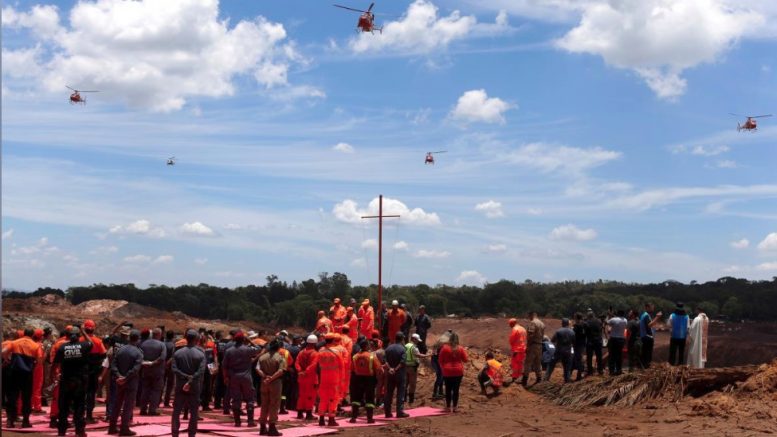More than a year after the tailings disaster at Vale’s (NYSE: VALE) Brazil Córrego do Feijão iron ore mine killed 270 people, the mining industry is still slow to adopt changes needed to prevent similar catastrophes, a new study shows.
According to Amsterdam-based Responsible Mining Foundation (RMF), while investor-led action has resulted in improved transparency regarding the state of global tailings storage facilities (TSF), the vast majority of companies are still unable to demonstrate that they are reviewing how effectively they are managing related risks.
The non-profit, funded by the Dutch and Swiss governments and some small philanthropic organizations, argues that the most critical issue is that very few mine sites show evidence of having informed local communities about what to do in the case of a tailings-related emergency.
Until recently, there were no set of universal rules defining exactly what a tailings dam is, how to build one and how to care for it after it is decommissioned.
Some previous effort in that direction includes the World Mine Tailings Failures, an online database aimed at exposing the cause of tailing dams disasters, giving direction on how to prevent them.
Over the past year, a number of initiatives aiming at setting global standards have materialized.
The International Council on Mining and Metals (ICMM), a London-based industry group representing 27 major mining companies, has set an independent panel of experts in charge of developing global standards for tailings facilities.
The Church of England, which invests in mining companies through its pensions for retired clergy, along with its partners, launched in April 2019 a global inquiry into mining waste storage systems of more than 700 resources companies.
It now asks companies to disclose data on tailings dams on a regular basis.
The RMF says in its report that while a global standard on tailings management is a welcome initiative, it could be significantly strengthened to become a real game-changer in terms of tailings safety.
That would involve setting out clear requirements on points such as public disclosure of key information, engagement with local stakeholders, strong mitigation measures to address the risks posed by existing TSF, as well as broader accountability for senior management and boards of directors.
Global rules should also respect Free Prior and Informed Consent (FPIC) as mandatory where new or expanded TSF are located in areas with indigenous peoples, the report says. It also recommends banning disposal of tailings in lakes, rivers and oceans.
Among the panel’s recommendations: Wherever possible, tailings should be stored dry, though it acknowledged retrofitting existing tailings impoundments isn’t always possible and can have risks.
— This article first appeared in our sister publication, MINING.com.




Be the first to comment on "Miners’ response to Brazil dam disaster still weak: report"